We review the literature looking at breastfeeding vs formula or bottle feeding and how it impacts the risk of weight gain and “obesity” later on in adulthood.
I have learned a hell of a lot since becoming a mom to Baby E, but one of the biggies is that he is an absolute MASTER at regulating his food intake. It’s usually quite obvious when my son is hungry (he will literally grab his bottle and shove it into his mouth) and it’s equally obvious when he is full (he will seal his lips so damn tight not a drop can pass through.) Man, if only we were that in tune with our hunger and satiety cues.
Why We Need to Trust That Babies KNOW How Much to Eat

Even though babies are born with this innate ability, there’s a growing concern that parents can manipulate and sabotage these skills. New research suggests that how we feed our babies can have significant consequences on their weight potential as they get older. Researchers have found that 20% of adult “obesity” is caused by over-feeding in infancy and this is even before solids are introduced.
While the stat was alarming, being a “Jewish mother”, it doesn’t surprise me. Research has found that moms of babies who are smaller tend to pressure them to eat more out of their bottle, while moms with larger babies tend to restrict. The concern is that this control may “raise the risk of weight gain by undermining the child’s ability to self-regulate food intake”. And all that out of our desire to nourish and love!
I first heard about the idea that breastfeeding vs formula or bottle feeding could impact baby’s weight gain or risk of “obesity” in a mom group I was reading threads from at 2 in the morning (#pumpinglife). One mom was trying to make a point that “breast is best”, and considering my struggles with breastfeeding, I couldn’t help but react. I had to look into the literature to get the whole story, and of course, I figured we would share what we learned with all of you in the process.
As always, I want to make it clear that this article is NOT meant to shame moms for choosing breastfeeding vs formula feeding vs bottle feeding pumped milk for their babes. We all just do what we can (or want) to do, and honestly, so much of their physical destiny has nothing to do with ANYTHING we can control. But still, knowledge is power, they say, so let’s dive in.
Breast Milk vs Formula and the Risk of Obesity
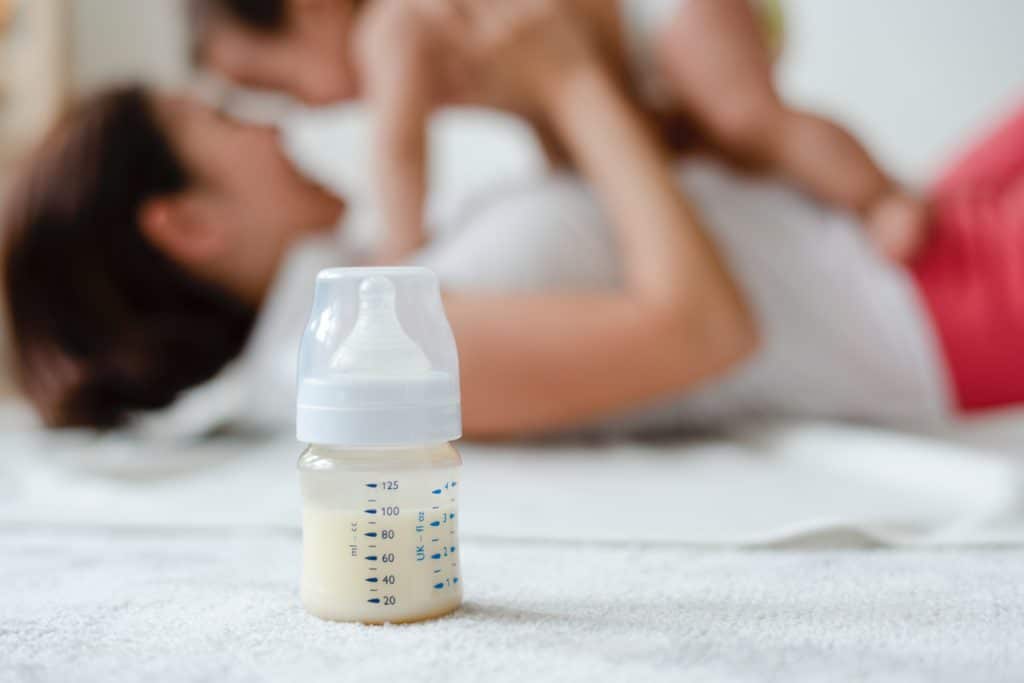
When discussing infant feeding before 6 months we are often talking about breast milk vs formula so let’s take a moment to discuss their differences and how their play a role in baby’s growth.
According to a recent 2018 study, breastfeeding was associated with lower BMI and lower risk of rapid weight gain compared to formula supplementation. This link was most significant for moms of babies who were exclusively breastfed. This study findings are supported by the American Academy of Pediatrics statement that breastfed infants have a 26% reduced risk of “obesity” later in life.
In contrast, research has found that formula fed babies at 12 months were three times more likely to be “overweight” compared to exclusively breastfed babies. Researchers even found that at 12 months, an infant’s risk of becoming “overweight” was twice as high when they were fed a combination of breast milk and formula at six months compared to exclusive breastfeeding.
What does all this mean? Well it seems as though breast milk MAY carry some benefits that go beyond just immediate nutrition and may play a significant role in your baby’s weight and appetite.
Breast Milk vs Formula Composition & Satiety

Breast milk carries some very unique properties. For one thing, each baby’s breast milk is unique to just them, whereas there are a variety of different formula brands, but they aren’t tailored to you or your babe. Some experts theorize that because of the variation in consistency and contents of breast milk from day to day, month to month, and even hour to hour, babies can better learn to adapt and self-regulate their intake.
Research studying the components of breast milk have found that it contains a hormone known as leptin which is associated with appetite regulation. This study found that the leptin in breast milk appeared to provide moderate protection to infants from excess weight gain because of its role in decreasing appetite.
In contrast, research has found that infant formula contains higher levels of the hormone ghrelin compared to breast milk. For those of you who aren’t familiar with ghrelin, it works in opposite of leptin, and instead stimulates our appetite so we eat more.
Another interesting thing is that the fat content in breast milk is higher toward the end of each breastfeeding episode (the hind milk) which may act as a signal for infants to stop drinking the milk due to fullness. This becomes a teaching lesson for infants on listening to their satiety cues and knowing when they’re finished eating. In contrast, the nutritional composition of formula is consistent throughout a feed so formula fed babies don’t get that cue.
So what’s the long term effect? Well, one study found a significant association between breastfeeding and increased children’s satiety response among children aged three to six years. On top of that, another study found that breastfeeding was associated with increased satiety responsiveness in children aged 18 to 24 months.
Is it because of breast milk vs formula’s unique and different compositions? It’s something we don’t know for sure. But I guess if this is true, you could compare the experience to eating intuitively and allowing yourself a wide variety of foods every day compared to following a regimented diet where you eat the same thing at the same time every day. When you’re on a diet, you don’t really need to listen to your body’s needs because you’ve already calculated your “macros” and are just eating the preset amount that you know works for you. It’s routine. I’m not necessarily saying that’s how formula fed babies operate (I don’t know, I’m not a baby), I’m just trying to create an analogy to explain this popular expert theory.
Bottle Feeding Pumped Breast Milk vs Breastfeeding & the Risk of “Obesity”
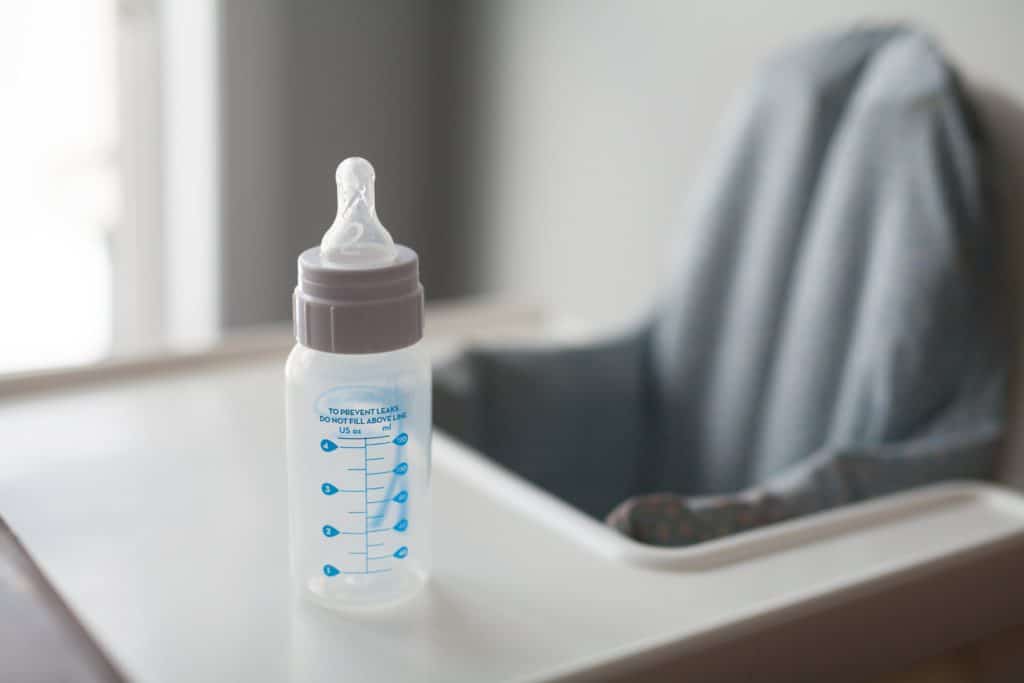
Aside from the ingredients in breast milk vs formula, another proposed theory to explain the differences in “obesity” rates is that bottle feeding in general might cause overfeeding. This would also theoretically affect babies who are fed pumped breast milk in a bottle (like Baby E).
Now, I don’t know a lot of moms who exclusively pump by choice. Most of us either had a bad latch, low supply, or went back to work early. Or you’re me and had all of those problems. So in these scenarios, pumping and bottle feeding is really the only way to give baby the benefits of breastmilk.
So what does the research say? Well, it’s not the best news for those of us who are slaves to our pump, but it’s also not reason to throw in the towel.
One 2018 study suggested that babies fed breastmilk from the bottle didn’t get the EXACT same benefits as those who were exclusively breastfed from the breast. By 12 months, infants fed breast milk in a bottle had intermediate BMI scores and their risk of weight gain was higher than infants fed breastmilk from a breast, but still lower than formula fed babies. Based on this, the researchers concluded that direct breastfeeding from the breast provides the greatest protection against rapid weight gain, while bottled breast milk provides intermediate protection.
So what’s going on with the breast milk in the bottle?
It may Interfere with Self Regulation
With bottle feeding, there’s more responsibility on the parent to regulate consumption since they’re the one filling the bottle with a pre-determined amount and putting (and potentially keeping) the bottle in their baby’s mouth. The baby still can turn away, yes, but it’s not that hard to override them. They are, after all, just babies. In contrast, the baby has much better control when they’re putting their mouth to the breast (I guess unless you literally shove your boob in their face).
Not surprisingly, one study found that moms who cued their baby to empty the bottle interfered with their baby’s hunger and satiety cues. However, this research did not measure the impact this has on and infant’s weight. That being said, several studies have found that a less controlling feeding style usually promotes healthier eating behaviours and weight later on as the child grows. This sentiment has been echoed in other studies linking food pressure and restriction with “obesity”, and totally makes sense from a mindful eating perspective, too.
Freshness
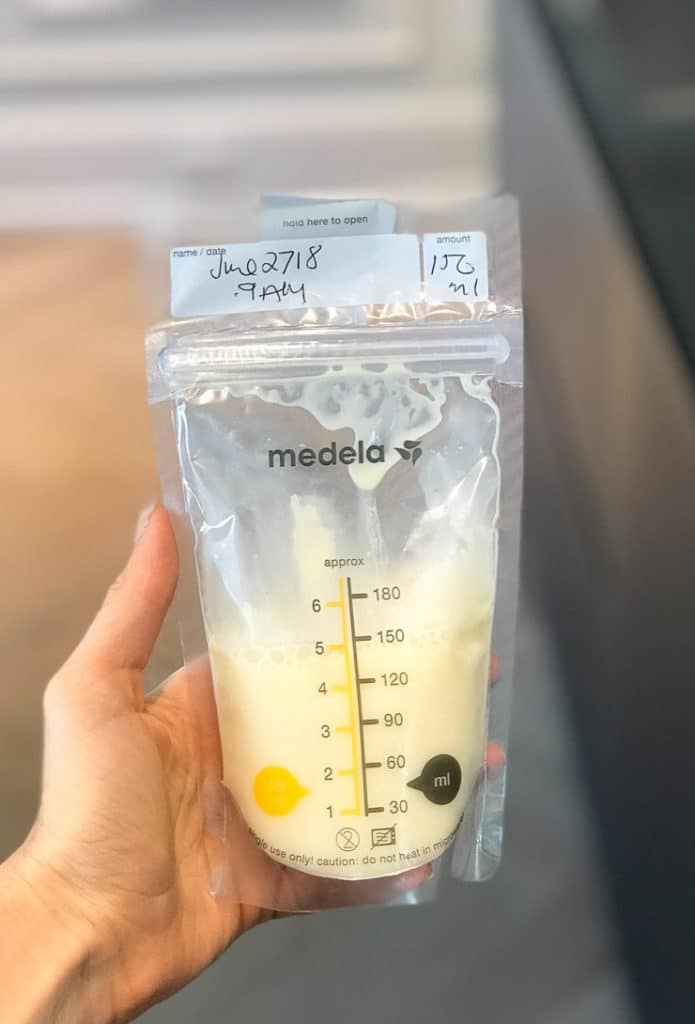
When breastfeeding, all of the healthy components of breast milk (enzymes, hormones, antibodies, live bacteria and stem cells) are provided directly to your baby while it’s fresh from the breast. However when you’re pumping, moms will often refrigerate or freeze the pumped milk to be used at a later time. Researchers are suggesting that changing the temperature and even the consistency of the breast milk may affect these components in the breast milk, potentially rendering them not as effective. One 2012 study found that breastmilk that had been frozen for just three months saw a reduction in milk fat and energy concentration. Like we mentioned earlier, one of the satiety effects of breast milk is the presence of the fat content at the end of the breastfeeding session, so without that high fat content, a baby may still be hungry for more. Another study found that the storage, freezing and thawing process of breast milk decreased the fat content, however there was no significant decrease in energy content.
The shift in breastmilk composition is definitely interesting, but we don’t yet know if or how it impacts baby’s weight. In fact, it’s very likely that a baby drinking a lower calorie breastmilk bottle would simply drink more of it to get enough. But again, we don’t have a comprehensive enough study to iron these details out.
Well How Does Overfeeding Milk Influence Overfeeding Food?
So if you’re all in a tizzy worrying that you might have inadvertently influenced your kid’s future relationship with food just because you were worried about them falling off their growth curve, take a breath. Keep in mind that the breastmilk vs formula or bottle feeding stage is SO short in the context of their entire life. How we talk about (solid) food and our bodies, and how we serve food as our kids grow up surely plays a more substantial role. The key is to not continue the food pushing trend down the road. Unfortunately, it’s hard to teach an old dog new tricks.
One 2014 study found that when moms who encourage their baby to empty their bottle also tend to pressure their kids to eat later on when they’re six years old. Research has found that the more we pressure our kids to finish their plate or try to restrict food, we may be indirectly promoting problematic eating styles and shifting our kid’s internal set point. One study on teens found that up to 2/3 of parents still pressure their teens finish the food on their plate. Another 2015 study confirmed this finding and found that this relationship also was linked with increased risk of “obesity” later on in life.
But let’s get back to bottlefeeding for a hot minute. If you’re going this route (either with formula or breastmilk), what can you do to reduce the risk of overfeeding baby? Well moms and dads, it starts by paying attention to their satiety cues.
How to Know when Baby is Full

You may be in control of how much formula or breastmilk you put in the bottle, but you still want to pay close attention to baby’s hunger and satiety cues to tell you when they’ve had enough. Here are some things you should be looking for to determine your baby is full.
Closing Lips
Just like when a baby sucks on their fist and smacks their lips when they’re hungry, they will also close their lips which translates to: “No more food, thanks”.
Turning Head Away
When your baby is done eating, they will often turn their entire head away from the food source, whether that be the breast or bottle.
Decreasing or Stopping Sucking
While some babies may stay latched on the nipple of a breast or the nipple of a bottle for comfort, if they’re full they’ll stop sucking and swallowing the milk.
Spit Out the Nipple
You will know when your baby has had enough milk if they spit out the nipple.
Losing Interest
Even if there’s a few distractions around them while their eating (aka Poppy, our dog), a baby will still find a moment to eat because they’re hungry. When they’re full, they’ll start to lose interest with their food and instead take interest in their surroundings instead. Are they looking around and trying to grasp at things nearby? They might actually be full!
Tricks and Techniques to Prevent Overfeeding Baby Formula or Pumped Breast Milk in the Bottle
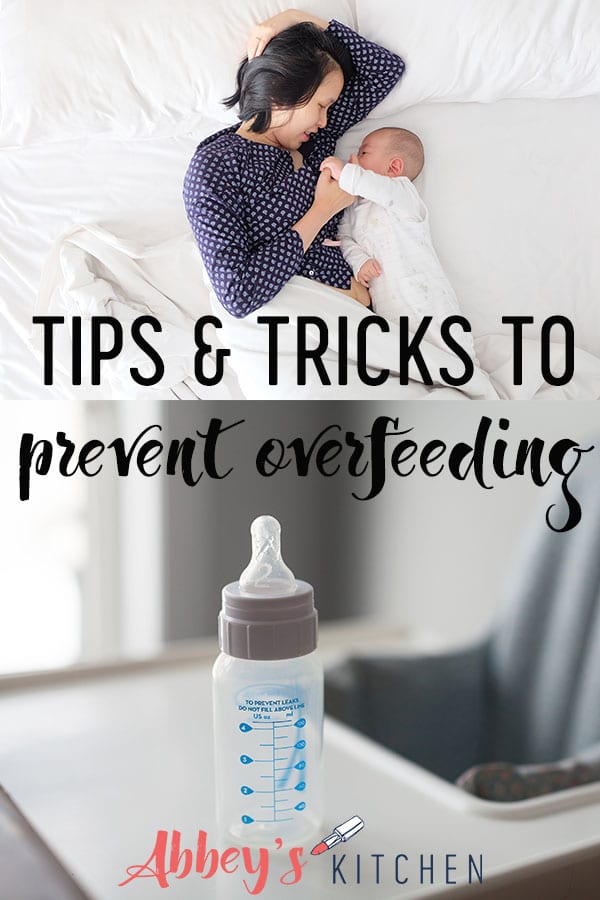
If you’re looking at all those satiety cues, but still need some support trusting that your baby has had enough to eat, here are some great tricks and techniques to prevent overfeeding with the bottle.
Opaque Weighted Bottles
One study used a weighted opaque bottle to see if it would impact how much moms fed their babies. These unique bottles prevented the caregiver from seeing or feeling the amount in the bottle, leaving it more up to the baby to determine how much to eat. The study found that infants consumed less formula when fed from an opaque bottle compared to when fed from a clear bottle. To date, there are a few opaque bottles on the market like Philips Avent opaque bottles.
Bottle Design
There is some interesting new research suggesting that the design of our bottle can impact baby’s weight and eating behaviours. One 2012 study compared two bottle designs.
Bottle A contained a one-way air valve where air flows into the bottle to replace milk when the infant sucks. This is described as “partial anti-vacuum”.
Bottle B contained an internal venting system where air flows continuously into the bottle when inverted. This is described as “complete anti-vacuum”. You can find this bottle on the market by the brand Dr. Brown’s.
The author’s hypothesis is that Bottle A would require more effort to obtain milk because of the flow of air into the bottle and would result in lower rates of milk intake leading to slower growth which would be more similar to breast fed infants. Sadly because of the small sample size the authors of the study could not draw any conclusions and this is currently only based on theoretical hypotheses. This is really exciting research, especially for mothers who rely on bottle feeding for their baby’s nutrition so we’ll have to keep an eye on this in the future.
Paced Feeding
Paced bottle feeding is a method of bottle feeding that is designed to better mimic breastfeeding. With this style of feeding you let the baby choose the pace of feeding and let them decide how much milk they would like. Here are some steps on how to do this:
- Hold the baby upright instead of flat on their back.
- Use the bottle to tickle the baby’s upper lip and the baby should reach up and latch on to the bottle.
- Encourage the bottle to be far into the baby’s mouth and encourage the baby’s lip to be relax around the outside of the bottle.
- Rather than tip the bottle up, hold the bottle horizontal.
- The baby will begin to drink milk.
- Allow them to drink for 20-30 seconds.
- Pull the bottle down but leave the nipple in the baby’s mouth.
- Wait until the baby begins to suck on the nipple again.
- When the baby begins to suck, lift the bottle up horizontal again.
- Wait another 20-30 seconds and pull the bottle down again without pulling them out and wait for the baby to re-engage to suckle again.
- Continue to do this again and again. At some point when the bottle is down, the baby won’t start sucking again.
- End the feeding.
Video Credit: https://www.youtube.com/watch?v=UH4T70OSzGs&feature=youtu.be
Baby Led Weaning
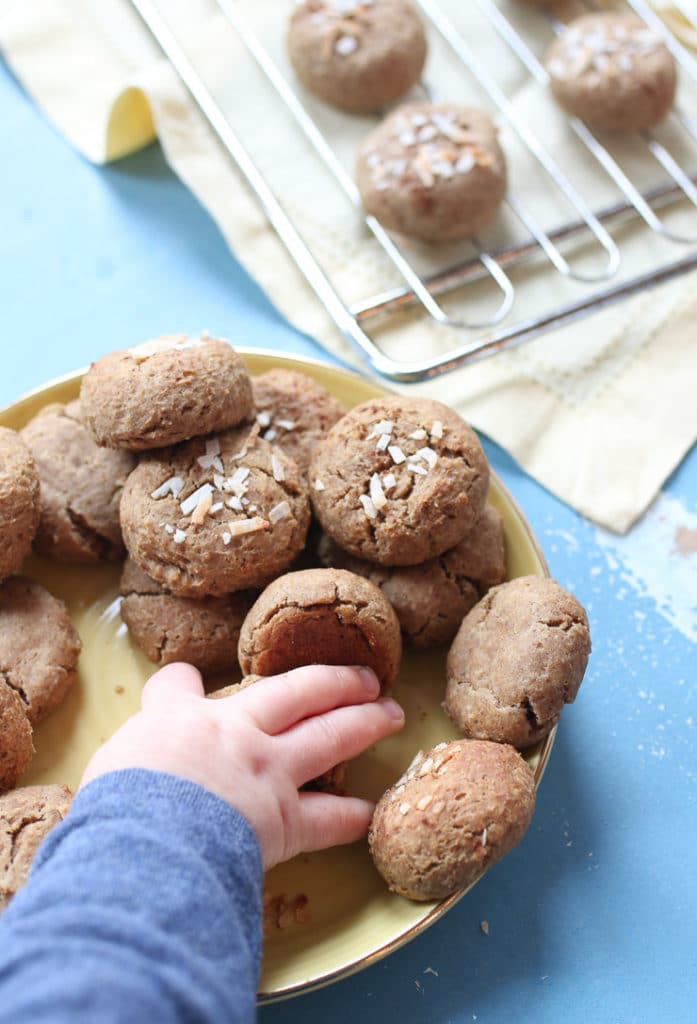
When it’s time to introduce solids, my go-to method of feeding is baby led weaning. Baby led weaning is where parents offer a variety of baby-friendly solid finger foods and it is up to the baby to choose what they would like to eat using their own hands. This method gives the infant the control and allows them to learn how to self-regulate their intake. Trusting your infant to make those decisions provides them with independence and can help in re-enforcing their relationship with food.
Bottom Line on Breastfeeding vs Formula or Bottle Feeding and the Risk of “Obesity” and Weight Gain

Here’s the truth from one Type A control-freak mama to all of you. Infant-led feeding (whether with breastmilk, formula, or solids) can be really hard when you want to micromanage everything, but consider it one of the many major learning curves of parenting
Another important thing I want to point out is that this article is in no way attempting to shame mothers for choosing one feeding method over another. The information shared in this article is only one piece of a VERY LARGE puzzle when it comes to forming our child’s relationship with food. To say that bottle feeding for 6 months is the sole factor involved in your child’s weight is ABSOLUTELY FALSE. This research I’ve discussed is correlational and in many cases, very preliminary, and the honest truth is that bottlefeeding alone DOES NOT make your kid “fat”. If we’re letting them guide the way, and following that up with healthy modelling of solids at meal times, we’re setting them up for a healthy happy relationship with food. Trust those little humans. Their amazing intuition and skills will surprise you and likely teach us something, too.
So mamas and dads, what was your experience growing up and how you were fed? Do you think it impacted your relationship with food?
Did you bottlefeed or breastfeed your baby? Did you find it had any impact on their weight throughout childhood, adolescence or adulthood?
Leave me a comment below with your thoughts on this!
Contribution By:
Sofia Tsalamlal, RD, MHSc
Updated on August 6th, 2020

Abbey Sharp is a Registered Dietitian (RD), regulated by the Ontario College of Dietitians. She is a mom, YouTuber, Blogger, award winning cookbook author, media coach specializing in food and nutrition influencers, and a frequent contributor to national publications like Healthline and on national broadcast TV shows.
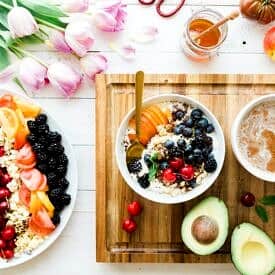
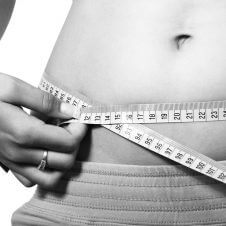
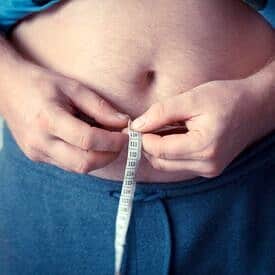

Carly says
So I’m 33yrs old and was exclusively breastfed for 15 months. I was overweight as a child and became addicted to sugar. I ended up losing weight by age 15 and weighed 52kgs until age 25 when I began a nursing career which entailed horrendous shift work I gained 22kgs over 7yrs. In the last yr i lost 10kgs very easily through quitting my job and not working shift work hours. I am now 8wpp and am 15kgs off my pre pregnancy weight and have only lost 9kgs from the delivery. I struggled big time with massive cravings and overeating in my pregnancy (and breastfeeding – hoping when I stop breast feeding I can lose weight again. My brother was formula fed from 3 months onwards and has been very skinny his whole life! So opposite to my family lol. But my observation is formula fed babies end up addicted to junk food through influences of the parents….
Deborah Brooks says
This was a heated topic when I had my kids 20 years ago and sounds like it still is!
Sofia Tsalamlal says
Totally.